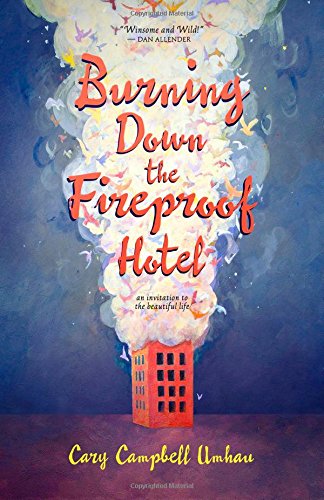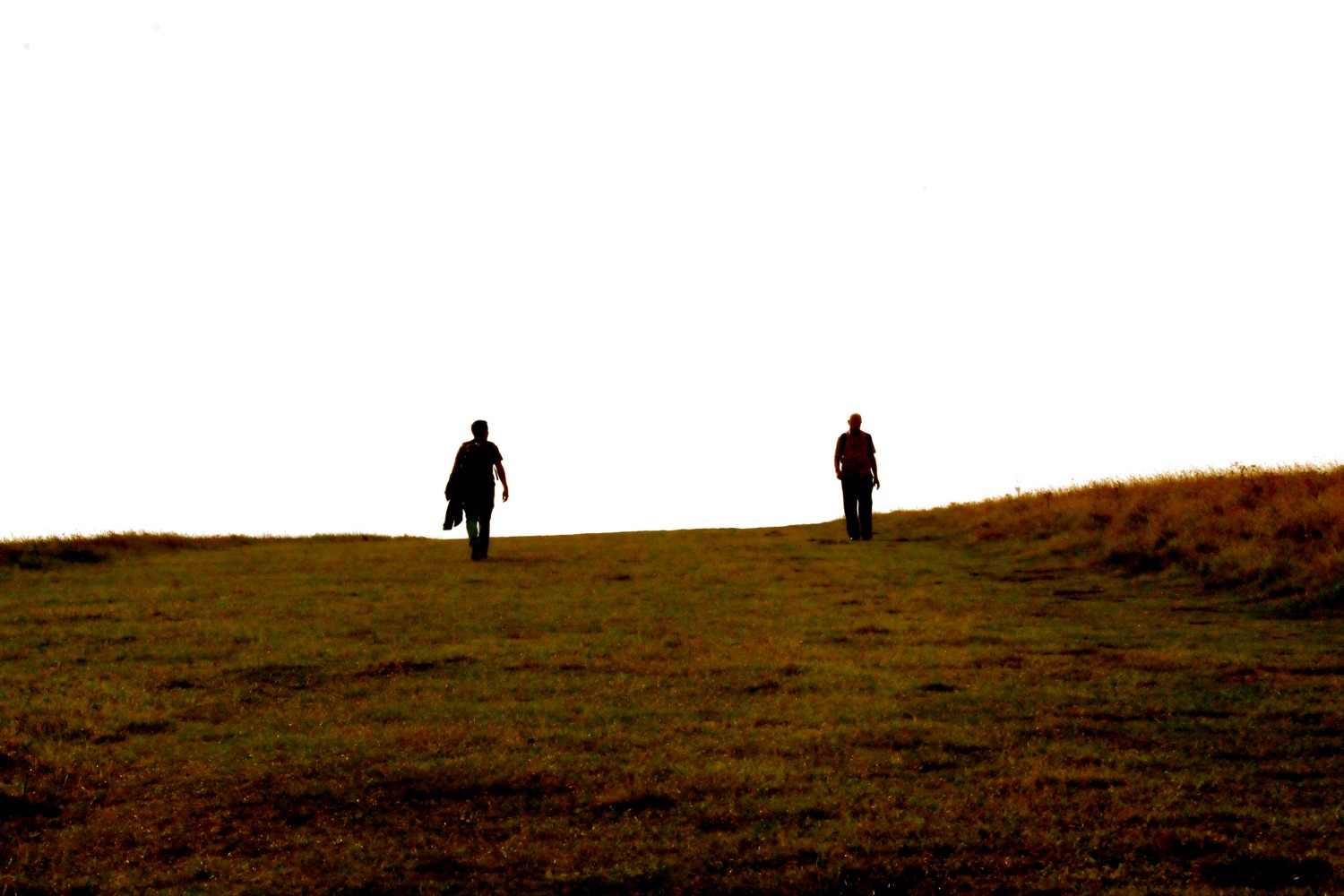Cary Umhau, a frequent participant in conferences and workshops through The Allender Center and a fellow in the Leadership in the New Parish Certificate program, has recently published a spiritual memoir, Burning Down the Fireproof Hotel: An Invitation to the Beautiful Life. In this excerpt from the book, Cary reflects on her desire for real, meaningful intimacy that goes beyond romance. Read more about Burning Down the Fireproof Hotel here and another excerpt, about pursuing a unique faith rather than cookie-cutter Christianity, here. Check back next week for a third and final excerpt.
Love showed up at the International Arrivals Terminal at Dulles Airport. I was waiting for a friend to arrive when I witnessed a reunion of two women, perhaps sisters, cousins or friends. They were both around 30. When one of them came through the door from Customs they came together in an embrace that seemed somehow life defining. The joy in their reunion telegraphed, “You are part of me, and I’ve been incomplete while we were apart.” The bond looked capable of setting them both aflame. It was the purest manifestation of friendship I’d ever witnessed, without a whiff of the eroticism that we often assume is necessary for the deepest kinship.
The two of them beheld only each other as friends and relatives swirled around them, leaving them largely alone. They would throw their arms around each other, then pull back a bit and just look at one another with delight and wonder that they truly were here, together, finally. They took turns kissing each other on the cheek or holding the other’s face between eager hands. And then they’d hug again.
I couldn’t look away from the intimacy; maybe I should have, but I couldn’t.
I wanted what they had so badly. I prayed for it while stifling cries that could have reached heaven itself, wherever that is, if I’d let them out. I felt crushing disappointment that I’d never looked at anyone nor been looked at that way and also a warm, bubbly delight at knowing that something like that was happening on planet Earth for somebody.
Tears were rolling down my face.
* * *
 For a few years, like a moth drawn to flame, I frequently watched one of the last scenes in the movie My Best Friend’s Wedding. I had learned over the years to pay attention to repetition and tears as clues to what God was trying to show me. This movie scene fit.
For a few years, like a moth drawn to flame, I frequently watched one of the last scenes in the movie My Best Friend’s Wedding. I had learned over the years to pay attention to repetition and tears as clues to what God was trying to show me. This movie scene fit.
In the movie Julia Roberts plays a woman named Jules who has come to town to try to stop her best friend Michael from marrying the wrong girl, since she’s now realized that she—always platonically connected—is the right one for him. The relationship between Jules and Michael is sweet, and yet the audience is willing for him to go off with his fiancée Kimmy—mostly because the plot is more nuanced than I’m describing. And that’s what he ultimately does.
At the end of the movie the bridal couple goes off in their limousine with fireworks exploding, and then the camera fades back to lovely Jules sitting at a table alone as the reception winds down. Her cellphone, the size of a loaf of bread, rings. Jules answers and it’s George, one of her other dear friends. George has secretly come to town to be there for her when her heart gets stomped, as he knew it would when Michael inevitably went off with Kimmy. Jules is relieved when he calls her to provide a lifeline out of her loneliness and doesn’t know that George is actually across the room.
George starts mentioning things he would only know if he could actually see her. He says something about her lavender dress—she hadn’t told him the color—and how her hair is swept up. He notes that she’s sitting alone and not dancing, to which she replies cynically that dancing may happen in another 30 years or so. He muses that she hasn’t touched the wedding cake in front of her. He teases that she’s probably drumming her fingers on the white linen tablecloth the way she always does—which she is in fact doing. He says that she’s probably looking at her nails and thinking she should have had a manicure; she is.
And the more George says, the more Jules feels seen and known and hopeful.
She jumps up and starts looking around. The crowd parts, and George swoops in for the rescue of his lonely friend. As the wedding band cranks up “I Say a Little Prayer,” George asks Jules, “Has God heard your little prayer? Will Cinderella dance again?”
He grabs her hand and leads her to the dance floor, acknowledging that he is in fact gay and therefore “Maybe there won’t be marriage . . . maybe there won’t be sex . . . but, by God, there’ll be dancing.”
I practically dissolved into a puddle on the floor every time I watched that scene as I did again writing about it because I myself so wanted—and want—to be seen and known and rescued that way.
I melt in the arms of a God who invites me to dance when I feel invisible, inhibited, passed over or alone.
Who finds me delightful just as I am—erratic and imperfect.
And sees the glory of who I could become.

